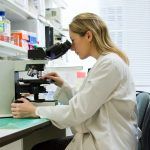On 3 May, the European Commission launched the European Health Data Space (EHDS), one of the central building blocks of a strong European Health Union. The EHDS will help the EU to achieve a quantum leap forward in the way healthcare is provided to people across Europe. It will empower people to control and utilise their health data in their home country or in other Member States. It fosters a genuine single market for digital health services and products. And it offers a consistent, trustworthy and efficient framework to use health data for research, innovation, policy-making and regulatory activities, while ensuring full compliance with the EU’s high data protection standards.
The Vice-President of the European Commission, Margaritis Schinas, said: “I am proud to announce the first common EU data space in a specific area. The European Health Data Space will be a ‘new beginning’ for the EU’s digital health policy, making health data work for citizens and science. On this day, we are laying down the foundations for secure and trustworthy access to health data that is fully in line with the fundamental values underpinning the EU.”
Commissioner for Health and Food Safety, Stella Kyriakides, said: “We are putting in place another pillar for the European Health Union. Our vision is becoming a reality . The European Health Data Space is a fundamental game changer for the digital transformation of healthcare in the EU. It places the citizens at its centre, empowering them with full control over their data to obtain better healthcare across the EU. This data, accessed under strong safeguards for security and privacy, will also be a treasure trove for scientists, researchers, innovators and policy-makers working on the next life-saving treatment.The EU is taking a truly historic step forward towards digital healthcare in the EU.”
Putting people in control of their own health data, in their country and cross-border
- Thanks to the EHDS, people will have immediate, and easy access to the data in electronic form, free of charge. They can easily share these data with other health professionals in and across Member States to improve health care delivery. Citizens will be in full control of their data and will be able to add information, rectify wrong data, restrict access to others and obtain information on how their data are used and for which purpose.
- Member States will ensure that patient summaries, ePrescriptions, images and image reports, laboratory results, discharge reports are issued and accepted in a common European format.
- Interoperability and security will become mandatory requirements. Manufacturers of electronic health record systems will need to certify compliance with these standards.
- To ensure that citizens’ rights are safeguarded, all Member States have to appoint digital health authorities. These authorities will participate in the cross-border digital infrastructure (MyHealth@EU) that will support patients to share their data across borders.
Improving the use of health data for research, innovation and policymaking
- The EHDS creates a strong legal framework for the use of health data for research, innovation, public health, policy-making and regulatory purposes. Under strict conditions, researchers, innovators, public institutions or industry will have access to large amounts of high-quality health data, crucial to develop life-saving treatments, vaccines or medical devices and ensuring better access to healthcare and more resilient health systems.
- The access to such data by researchers, companies or institutions will require a permit from a health data access body, to be set up in all Member States. Access will only be granted if the requested data is used for specific purposes, in closed, secure environments and without revealing the identity of the individual. It is also strictly prohibited to use the data for decisions, which are detrimental to citizens such as designing harmful products or services or increasing an insurance premium.
- The health data access bodies will be connected to the new decentralised EU-infrastructure for secondary use (HealthData@EU) which will be set up to support cross-border projects.
Background
The COVID-19 pandemic has clearly demonstrated the importance of digital services in the health area. The uptake of digital tools increased significantly during this time. However, the complexity of rules, structures and processes across Member States makes it difficult to access and share health data, especially cross-border. In addition, health systems are now the target of increasing cyberattacks.
The EHDS builds further on the GDPR, proposed Data Governance Act, draft Data Act and NIS Directive. It complements these initiatives and provides more tailor-made rules for the health sector. An open public consultation on the EHDS ran between 3 May and 26 July 2021 and gathered a wide range of views that contributed to the design of this legal framework.
The EHDS will make use of the on-going and forthcoming deployment of public digital goods in the EU, such as Artificial Intelligence, High Performance Computing, cloud and smart middleware. In addition, frameworks for AI, e-Identity and cybersecurity, will support the EHDS.

EU ensures continued supply of medicines to Northern Ireland, Cyprus, Ireland and Malta |
More information
European Commission – Unión Europea de la Salud
European Commission – Remarks by Commissioner Stella Kyriakides
European Commission – Remarks by Vice-President Margaritis Schinas







Leave a Reply